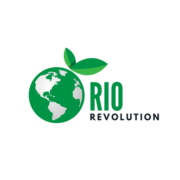Indigenous communities around the world have long been at the forefront of environmental stewardship, drawing on centuries of traditional knowledge to sustain their lands. As the climate crisis intensifies, their role in climate action has gained significant attention, highlighting their unique approaches to preserving biodiversity and combating environmental degradation. These communities often possess a deep understanding of their ecosystems, which proves invaluable in developing sustainable solutions.
Indigenous Climate Action

Indigenous climate action harnesses the unique perspectives and traditional knowledge of indigenous communities to address climate challenges. These communities have an intrinsic relationship with their environment, dating back centuries, which informs their climate solutions. Many indigenous practices, such as controlled burning and sustainable harvesting, promote biodiversity and weather resilience.
Incorporating indigenous knowledge into climate strategies offers practical benefits. Studies indicate that areas managed by indigenous peoples often show greater biodiversity than those under state protection. By integrating traditional ecological knowledge with modern technologies, environmental policies can become more effective and culturally sensitive.
Legal recognition of indigenous land rights also plays a crucial role in climate action. When given legal control over their territories, indigenous peoples can more effectively implement sustainable land management practices. Supporting these rights aligns with international frameworks like the United Nations Declaration on the Rights of Indigenous Peoples, promoting global sustainability efforts.
Collaboration with indigenous communities is key. By supporting indigenous-led initiatives and respecting their autonomy, broader conservation goals become achievable. Partnerships that value local expertise and prioritize community input can drive impactful climate action, benefiting both local environments and the global ecosystem.
Importance Of Indigenous Knowledge
Indigenous knowledge deeply influences climate action by providing valuable insights into environmental stewardship. Their traditional practices offer sustainable solutions to global challenges.
Traditional Practices And Sustainability

Traditional practices of indigenous communities emphasize sustainability. Techniques such as rotational farming and permaculture maintain soil fertility and support biodiversity. Controlled burning prevents wildfires and promotes ecosystem health by clearing underbrush and returning nutrients to the soil. These methods reflect a harmonious relationship with nature, ensuring long-term ecosystem viability.
Contribution To Modern Climate Solutions
Indigenous knowledge contributes significantly to modern climate solutions. Their insights integrate with scientific approaches to enhance environmental management outcomes. Knowledge of local species informs conservation efforts, while sustainable harvesting techniques guide resource management. According to the Intergovernmental Panel on Climate Change (IPCC), incorporating indigenous perspectives improves climate adaptation strategies and resilience, highlighting the importance of their participation in global efforts.
Indigenous Climate Leadership
Indigenous climate action plays a transformative role in global sustainability efforts. By combining traditional practices and community-driven initiatives, indigenous leaders make significant contributions toward climate resilience.
Influential Indigenous Leaders
Influential indigenous leaders impact global climate policy and action. For example, Patricia Gualinga from the Kichwa community advocates for Amazonian protection, highlighting the environmental importance of indigenous territories. Hindou Oumarou Ibrahim of Chad, a member of the Mbororo pastoralist community, promotes indigenous knowledge in climate adaptation strategies at international forums. Winona LaDuke, an Anishinaabe environmental activist, pushes for renewable energy development on native lands. These leaders bring indigenous perspectives to the forefront of climate discourse, thereby emphasizing the relevance of traditional ecological wisdom in modern sustainability discussions.
Community-Based Approaches

Community-based approaches among indigenous groups integrate traditional ecological knowledge with contemporary climate strategies. The Wai Wai of Guyana maintain forest health through rotational farming, contributing to carbon sequestration. In Canada, the Haida Nation’s sustainable fisheries management showcases effective resource stewardship. In Australia, the Martu people use controlled burning to reduce wildfire risks and enhance biodiversity. These initiatives demonstrate how community involvement and traditional practices can foster ecological balance, promote resilience, and effectively address climate issues.
Climate Action
Indigenous climate action stands as a beacon of hope in the fight against environmental degradation and climate change. By embracing traditional knowledge alongside modern scientific practices, indigenous communities offer invaluable insights into sustainable land management and biodiversity conservation. Their leadership and innovative approaches are crucial for crafting effective climate solutions that resonate globally. Empowering indigenous voices and securing their land rights are essential steps toward ensuring their continued contribution to global sustainability efforts.

